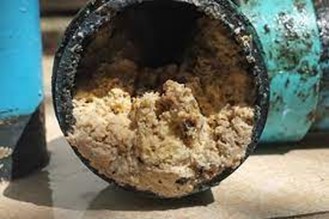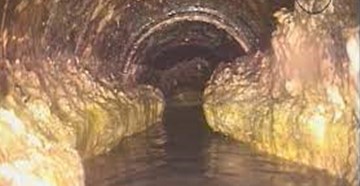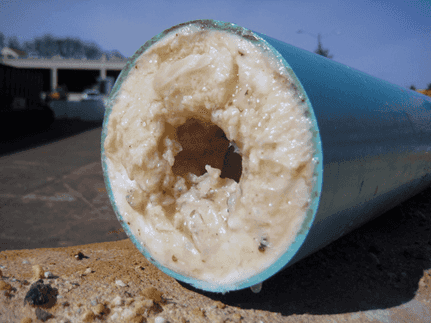
Many Fort Bend MUD 128 residents have been cooking at home far more than they had previously, and this comes with a certain amount of cooking waste. Something we don’t normally think about are the effects of fat, oils, and grease (F.O.G.) clogs in the sanitary sewer system. F.O.G. can solidify in the sanitary sewer pipes, causing clogs, blockages, and backups.
What is F.O.G. (pronounced like “fog”)?
F.O.G. is an acronym for Fat, Oil and Grease. It is harmful to the internal drainage inside the home, the District drainage infrastructure and the environment.
F.O.G. comes from a variety of food sources, either as an ingredient of OR a byproduct of food preparation.
Examples of F.O.G.:
- Fats found in meats through cooking and food scraps.
- cooking oil, lard or shortening
- butter or margarine
- bacon and sausage grease
- mayonnaise
- salad dressing and gravy
- dairy products, such as but not limited to milk, yogurt and cheese
When these items are poured down the drain, it can accumulate and harden inside sewer pipes causing blockages, backups, and overflows. When these failures occur, it can release raw sewage into the environment which then enters our drainage channels that lead into the bayous, creeks, lakes, and the Gulf of Mexico. This raw sewage carries a variety of bacteria that has a negative impact on human health, fish and wildlife.

In addition to the health impacts, it has massive financial consequences. The blockages and backups can destroy the pipes in your home as well as the infrastructure of the District water system. This destruction can cost homeowners in home pipe repair, but also affect taxpayers by costing a district thousands of dollars in infrastructure repair expenses. The expense of continually repairing clogged pipes may ultimately impact customers’ monthly rates or property taxes.

Let F.O.G .cool and DO NOT pour down sinks or drains!
Proper Disposal of F.O.G.:
- Pour into a sealable can or bottle then dispose at a local recycle center or household trash receptacle
- Scrape food particles and absorb excess oils with a paper towel from pots and pans prior to placing them into the sink for washing.
- Use strainers in the sink to catch scraps and other solids.
- Solutions like Oil-Dri Absorbent Clay® or cat litter can assist in capturing and drying out oil, fat and grease, thus making it safe to throw in the trash.
Please remember hot water and soap DO NOT eliminate FOG because it will eventually reform in pipes.
Sources: https://www.tceq.texas.gov/assistance/water/wastewater/fog/home_fog.html

